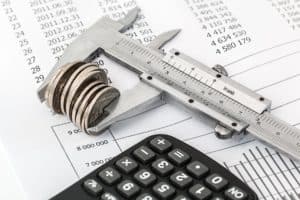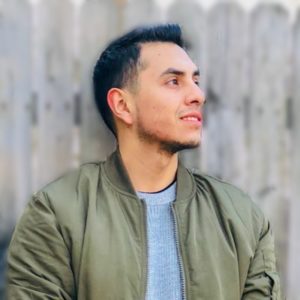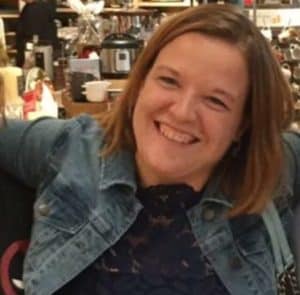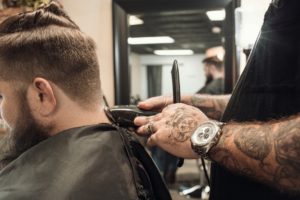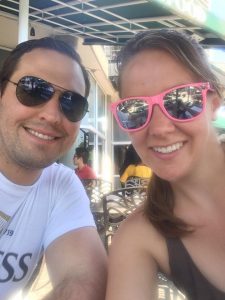Denis O’Brien [0:37]
Welcome to Episode 179. All about emergency funds.
Hey, Money Clan! A very warm welcome to the Chain of Wealth podcast. I’m your host Denis O’Brien.
Katie Welsh [0:49]
And I’m Katie Walsh.
Denis O’Brien [0:50]
So if you’re new here, first off a very warm welcome.
Katie Welsh [0:54]
Yes, we’re glad you’re here.
Denis O’Brien [0:55]
So Kate and I are super excited about today’s episode, we’re going to dive all into emergency funds, we’re going to talk about how much money you need to have, what sort of things you want to consider where to stash your money.. I really think it’s going to be an exciting episode.
Katie Welsh [1:9]
Yeah, and I like this topic, just because there is so much confusion. And once you start thinking about it, it all makes sense because I used to handle my emergency fund completely differently than what I do to now.
Denis O’Brien [1:29]
Yeah, I’m exactly the same way and having researched a little bit. I think that once you get the building blocks into place, you can really do some amazing things with your emergency fund. So before we dive into our episode, if you guys haven’t already, don’t forget to join our Facebook community, head on over to chainofwealth.com/group. We’d love if you joined our community and come and say hi, alright Kate, are you ready to dive right in?
Katie Welsh [1:51]
Yeah!
Denis O’Brien [1:52]
Fantastic, let’s do it.
Alright Kate, so emergency funds, and I’m going to turn to you for this episode. What is an emergency fund? First of off?
Katie Welsh [2:15]
Okay, yeah, well, I have learned a lot about emergency funds. So I am finally comfortable to lead a show. So an emergency fund is basically backup money that you have. So for example, you get sick, you have a flat tire, you lose your job, you have money in cash that you’re able to live off of.
Denis O’Brien [2:38]
Kate, I read a really scary stat. And that’s that the average American doesn’t have $1,000 in their emergency fund.
Katie Welsh [2:45]
That is terrifying. Think about it. If you don’t have $1,000 extra to your name. What are you going to do if you get into a car accident? Like even just a slight fender benders, usually about 500 bucks?
Denis O’Brien [2:58]
I’m gonna say not, what are you going to do, but when it happens.
Katie Welsh [3:3]
Yeah!
Denis O’Brien [3:4]
And it’s not necessarily a fender bender, but when an emergency pops up, what are you going to do? How you’re going to fund it? And that’s why this is such a critically important topic.
All right, I’ve got my head around what an emergency fund is, what should I be doing to build up my emergency fund? What are some things that I should be considering?
Katie Welsh [3:23]
Okay, so if you are starting from scratch, and you have no money leftover and put to your name, in case of an emergency, you basically have one of two options, maybe even to if you really want to be a go getter, your first option is to budget your money and see where you are spending excess money. And all that excess money that you can cut back, you need to save.
So, say, for example, you go out to eat once a week, a month, right? So that’s about four times a month, cut that back, you don’t have to go out, you can host friends over, you can go over to a friend’s house, you could do something like that, to save that money. And that is one way you can save budget your money and see where you can cut back.
Denis O’Brien [4:14]
But what if I’m in a position where I just never seem to have extra money, you know, I want to go out to you know, eat out once a week or whatever it is. And I have all my expenses. I enjoy my lattes, but I’m just not managing to put any money away. What do you have to say to someone in that position?
Katie Welsh [4:31]
Okay, good question. So if you feel like you have budgeted the best you can, or you are unwilling to change your lifestyle, there’s only one other option that I see.
Denis O’Brien [4:44]
What’s that?
Katie Welsh [4:45]
Make more money. It’s plain as day. I’m coming from a career field where I don’t make a ton of money. I’m a teacher, and everybody knows that we are underpaid, and under appreciated that that’s another story.
If you are not making enough money that you are able to save up for your emergency fund, you need to get a side hustle, that side hustle can be something like driving for Uber, or, you know, dog sitting cat sitting house sitting plants sitting a lot of sitting apparently. Or, I have even done things in the past or I have gotten like weekend jobs where I am a server, a popular restaurant. And still to this day, when it comes to making quick money in cash serving is my favorite way to do it. Because you get your tips and you walk out and you’re done. And it is, in my opinion, one of the hardest jobs and I have had a lot of jobs in my life serving is tough. But when you’re in dire straits, and you need that quick money, that’s the best way to do it, I think.
Denis O’Brien [5:56]
Okay, so I want to save up my emergency fund, you are basically telling me that I’ve got two options. Number one, is I can cut down my expenses and sort of try and budget my way in that so that I have extra money. Or number two, I need to earn more money.
Katie Welsh [6:11]
Right.
Denis O’Brien [6:41]
What I’m is if I do both?
Katie Welsh [6:14]
Well, then you’re just the real go getter. Then you are saving that extra money that you could have spent elsewhere. And you are also getting even more money than what you were originally earning. So now you’re just compounding and doubling your savings. So you’re going to reach your goal quicker.
Denis O’Brien [6:34]
Okay, so you managed to sort of start setting money aside, would you say that it’s important to sort of have a bucket for savings?
Katie Welsh [6:41]
Absolutely. So when you are building your emergency fund, I don’t think it comes as a surprise that in that time, your life does not stop. You still have to eat, your kids can still get sick, you need to pay yourself first. So take a portion of that money, put it towards your retirement plan.
Pay yourself first, but then any extra money that you are having. After you pay yourself first and then put towards all your bills. That is the money that you put towards your emergency fund. Did I explain that well?
Denis O’Brien [7:20]
Yeah, you did. You basically re engineer your budget, instead of saying, I’m going to spend, you know, these are all my expenses, and whatever’s left over, I’m going to save you saying figure out how much I want to be saving per month, and then build my expenses around that.
Katie Welsh [7:34]
Right.
Denis O’Brien [7:34]
And I think that that makes so much sense if you set up a budget, and that way, you’re always going to be getting whatever you want in the bank. And look, maybe an emergency does happen. But then you have an emergency fund that you’ve built up.
Katie Welsh [7:45]
Right, so how it should go and you get paid instead of, you know, you get your paycheck, and then you go to the mall, and then you buy your new cute outfit for the night. And then you pay your bills, and then you say what is left over, which is usually not a lot. This is how you should do it instead, first you get paid, then you put your set amount of money away, you pay yourself first, then your bills, then whatever is left over, you put towards your emergency fund.
Denis O’Brien [8:16]
I think that’s great advice. Kate, before we dive into what we’re doing with the money, I think now would be a great time to take a quick break and say a very big thanks to our sponsor.
Katie Welsh [8:25]
Yes.
So the Chain of Wealth Podcast is super excited to be partnering with The Great Courses Plus.
Denis O’Brien [8:34]
The Great Courses Plus is a collection of videos that’s all about learning. Kate, something that I really love about the Great Courses Plus is it gives you access to professors from the best universities in the world, experts from places such as the National Geographic and the Smithsonian. And it’s right from the comfort of your home. It’s literally college level learning. But what out student loans, no pressure of homework or grades. And they have a mobile app, which makes it super easy to consume the content.
Katie Welsh [9:4]
Yeah, Den. So they have a great money management skills course that talks all about financial planning, and how to buy a home and stuff like that. But even if you’re not looking for money management tips, they have tons of other cool courses that you can look into as well.
Denis O’Brien [9:23]
Yeah, so part of our partnership, you can get access to their library of over 11,000 videos, including the money management skills course. And if you head on over to TheGreatCoursesPlus.com/wealth, you will get a full month of free access to all of their video courses.
So I highly recommend you guys check it out. That’s TheGreatCoursesPlus.com/wealth, the Great Courses Plus where great learning happens.
And we’re back, so Kate, chatting about you know this emergency fund how we should be putting it Should I just be putting into my bank account? Should I have it in cash lyst tips that I’ve collected shop for under my pillow? What should I be doing with this money that I’ve now all of a sudden come into the possession of?
Katie Welsh [10:12]
So first off, if you are serving or you’re getting any kind of cash money, first, I totally get how tempted you feel to stash it in the coffee cannon your bed, because I was a huge – I don’t want to say victim but I definitely did that too. And I’ve also done the part where I put all of my money that I are saving in my bank account saving account. And you know what I’m talking about you, for example, go to Chase and you open a regular checking account and it comes with a savings account. For years I’m saying years and years, that’s where I kept my money. Because you’re always told growing up. You need to save your money. And where else would you save your money? But in your savings account? Right? It makes sense.
Denis O’Brien [11:6]
Right, it sounds like perfect logic.
Katie Welsh [11:8]
I know what I’m about to say, is it going to throw a complete monkey wrench to you. But I want you to hear me, think about it. And then hear me again and think about it again. And then act, okay. So I don’t want you to keep all your money in your savings account in your bank account, instead you need to invest that money.
Now I know what you’re thinking, Wait, you want me to invest that money that I’m going to use in my emergency fund? Right?
Denis O’Brien [11:41]
Right.
Katie Welsh [11:43]
Here’s the thing in your savings account that you opened 15 years ago, when you were a kid, and I’m sure you’ve been harboring all your money yet, you’re not getting any interest. And so your interest on your student loan or just keeps making your amount go higher? Well, that is not fun. But when interest is fun, I’ll tell you when it’s in your savings account, and it’s making your savings amount go higher. Okay, so invest it. I told my girlfriend today that I invest mine in my Robinhood account. And she said But wait, wait, wait, wait, what about if you do need like a $500? Or $1,000? You know, quick cash, what are you going to do?
Denis O’Brien [12:28]
Right?
Katie Welsh [12:29]
Because I don’t have $500 sitting in my bank account right now. But if I do need a $500 thing, real quickly, I’m responsible and I can put it on my credit card. And then I can cash out one of my stocks in Robin Hood, and then I can pay my credit card off.
Denis O’Brien [12:50]
Okay, so what about when it comes to like retirement funds and stuff like that? Like, where do you sort of draw the line? Should I be putting money into more of my retirement accounts? Or should I be putting money into like Robin Hood or some sort of emergency fund?
Katie Welsh [13:6]
I’m going to sort of answer you and I’m going to say both, okay. And it depends really on where you are in your life. Okay, if you are just getting married and and you are living in a tiny little apartment, and I’ll use us for example, because we are getting married and we do live in a tiny little apartment, we are putting more money right now into our Robinhood account to save so that we can buy a house, that does not mean that we are not putting any money into our retirement because we are we are matching and we are putting as much money as we can into our retirement accounts. And that could look like a Roth IRA or 401k. Or we did an episode a while back where I was talking about my 403b we are putting money into our retirement accounts. But we are trying to put more money into our Robinhood, so we can buy a house which will then become an asset. Does that makes sense?
Denis O’Brien [14:8]
That does make sense. So what I’m hearing is basically we want to put some money into retirement but mainly focus on the liquid cash for now was a liquid but it’s invested in stocks. So technically it can be used for retirement as well. And I can like move money over from a retirement account or from a , umm.
Katie Welsh [14:26]
Stock account?
Denis O’Brien [14:27]
No from an emergency fund into my longer term retirement funding accounts. And I guess that does make total sense you kind of getting the best of both worlds. And more importantly, you have money that’s now saved up in case the emergency happens. And once you’re at a point where you’ve kind of reached, you feel like you have enough money saved up, you can then start moving more and more into those tax advantaged vehicles.
Katie Welsh [14:49]
Exactly.
Denis O’Brien [14:51]
That sounds great. Kate, this has been an absolutely great episode. I think that this is absolutely critically fundamental for anyone that’s trying to get started. And if you guys want to get a free stock and get started on Robinhood you can head on over to chainofwealth.com/robinhood you can get a free stock if you use that link. That’s chainofwealth.com/robinhood.
We’ll catch you on the flip side, Money Clan!


